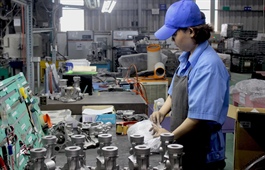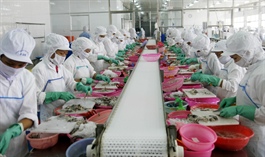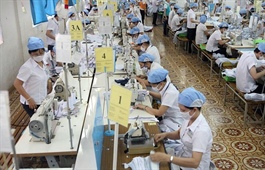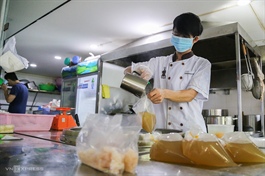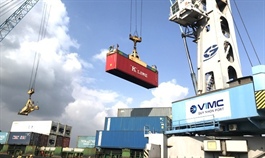Covid-19 is shrinking the textile and garment industry
Covid-19 is shrinking the textile and garment industry
Domestic textile and garment enterprises are struggling because of constant difficulties. Hoang Ngoc Anh, Secretary General of the Vietnam Textile and Apparel Association, spoke with Vietnam Economic News’ Viet Nga about broken contracts and disrupted supply and production chains.
|
What difficulties do textile and garment enterprises face in implementing regulations on disease prevention and control and ensuring production?
Firstly, according to Decree 82/2018/ND-CP on management of industrial parks and economic zones, enterprises do not provide places for employees to stay after working hours.
Therefore, the “three-on-spot” production strategy of workers eating and sleeping at their work site to enforce isolation can only be flexibly implemented at enterprises with a small number of workers and a large number of machines. Garment enterprises with 1,000 employees or more cannot provide adequate conditions for long stays by employees. In addition, for a garment enterprise with 1,000 employees, four Covid-19 tests a month alone at VND238,000 each will cost nearly VND1 billion.
Secondly, the application of test results as passports in some localities is disrupting production value chains and cutting off goods circulation in the domestic market. For example, in Hai Phong, from July 18 to 20, three gateways to the city were congested for many hours because of the regulation on applying stamps to vehicles and testing drivers.
Since implementation of Government Instruction 16, National Highway 1B towards Hanoi is also congested with vehicles waiting to pass the quarantine checkpoint. The biggest problem is that requirements for test papers are different in localities. Those in Binh Duong Province and Ho Chi Minh City are valid for three days, Long An’s for five days and Dong Nai’s for seven days.
In addition to the above difficulties, enterprises also face labor problems. Could you elaborate?
Enterprises are facing big problems in paying salaries. For those who do not agree to work under the “three-on-spot” model without a valid reason, it is unclear if they will get state support packages. Otherwise, what policies should the enterprises adopt to support their employees? Other problems are recruitment and retention of employees given the rapid spread of Covid-19, and the increasingly high transportation costs. As for employees who come back to their hometowns to avoid the pandemic, enterprises are concerned about whether they will return to work.
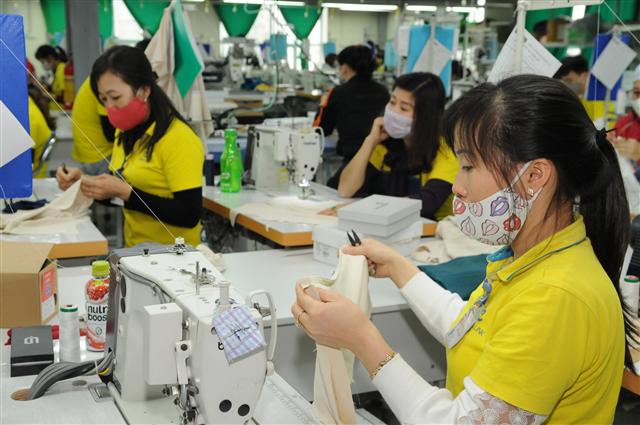
Enterprises find it difficult to retain employees
|
What are the association’s recommendations for easing business operations?
We recommended vaccinating employees, with priority given to freight drivers to help the smooth flow of goods.
State management agencies should reach a consensus on regulations for goods circulation to avoid traffic blocks, production backlogs and supply chain disruptions. They should also allow enterprises to return to production as soon as they put in place conditions for disease prevention and control.
Those employees who cannot participate in the “three-on-spot” model need to be supported. Employees’ fear is understandable given the dangerous spread of the pandemic. On the other hand, enterprises cannot afford to pay those who stop working. In addition, after the lockdown period enterprises should be allowed to work overtime (40 hours a month) to handle the backlog of orders while still adhering to an annual cap of 300 overtime hours as prescribed.








